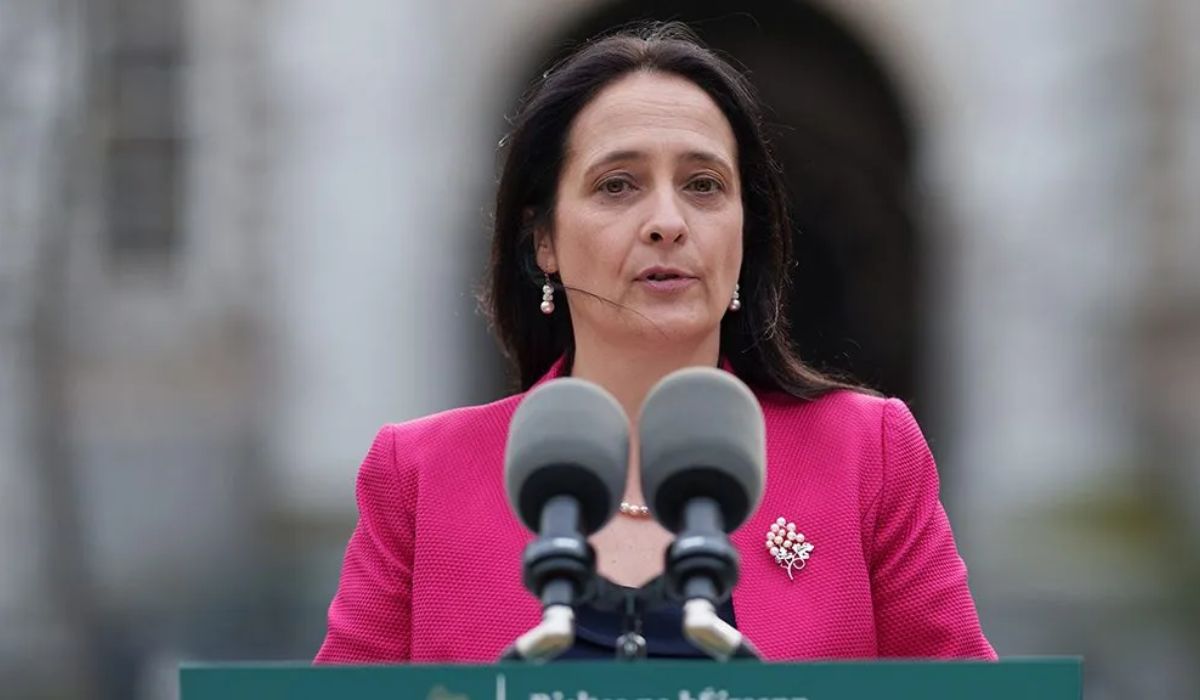A Major Dispute Over the Future of the Basic Income for the Arts Scheme
A significant conflict is emerging within the Coalition government over the potential abolition of a scheme that provides a guaranteed income for artists. The disagreement involves the Department of Public Expenditure and Reform (DPER), led by Fianna Fáil’s Jack Chambers, and the Department of Culture, led by Fine Gael’s Patrick O’Donovan. The core issue revolves around the Basic Income for the Arts (BIA) pilot scheme, which has sparked intense debate.
The BIA scheme was initiated by former arts minister Catherine Martin of the Green Party. It offers €325 per week to approximately 2,000 artists to address the financial instability commonly faced by those in the creative sector. The pilot project, which began in 2022 and is set to run until 2025, was designed to provide a stable income to support artists in their work.
Despite its initial success, the scheme nearly faced cancellation during a DPER review of spending in the Culture Department. As part of the preparation for the revamped National Development Plan (NDP) and Budget 2026, DPER has been scrutinizing all departmental expenditures. One minister described the process as “like a home invasion,” with officials going through every area like “a dose of salts.” Many ministers have felt the impact of this rigorous review, particularly those in the Department of Culture.
Sources within the Culture Department revealed that the BIA scheme barely survived the budgetary cuts. The minister had to fight hard to secure a six-month extension. Senior figures noted that DPER accountants were not impressed with the scheme, using phrases such as “strong reservations” regarding future initiatives. This language suggested that the scheme might be deemed unnecessary and potentially discontinued.
Minister O’Donovan has shown strong resistance to any attempts to reduce the scheme. He is known for his personal commitment to protecting the interests of artists. According to one Government figure, there has been extensive research into the operation of the BIA project, including comprehensive reports and consultations with artists about its impact.
A senior Fine Gael figure criticized the move, calling it politically unwise. They argued that the government should focus on more pressing issues rather than targeting a small group of artists. This sentiment echoes concerns about other contentious decisions, such as the proposed reduction in student fees.
Another Fine Gael source warned that Jack Chambers would need to be cautious, noting that while the Culture Department is small, the minister’s determination could lead to a significant confrontation. The source emphasized that O’Donovan would not tolerate any encroachments on his responsibilities.
The debate has also highlighted perceived contradictions in Fianna Fáil’s stance on cultural value. A Fine Gael source remarked that statements about the importance of Irish culture sound hollow without corresponding actions. They pointed out that “pride has to eat,” suggesting that the government must prioritize practical support for artists.
In response to inquiries, the Department of Public Expenditure stated that decisions related to Budget 2026, including the BIA scheme, will be considered as part of the normal budgetary process. However, the perceived success of the BIA scheme has led to criticism when Minister O’Donovan announced a short six-month extension.
Labour arts spokesperson Rob O’Donoghue criticized the uncertainty faced by artists, describing the situation as having a “six-month Sword of Damocles” hanging over their heads. O’Donovan has indicated his intention to seek a full renewal of the scheme in Budget 2026. He emphasized that the extension would allow time to finalize research and engage with stakeholders, providing a solid evidence base for future policy decisions.
O’Donovan highlighted the positive impact of the BIA payments, noting that they have helped artists devote more time to their work, produce more pieces, and experience improved wellbeing. The scheme was launched in 2022 with two funding streams: one for newly qualified artists and another for established ones. Approximately 2,000 eligible applicants were selected through random selection, with no means test applied.







